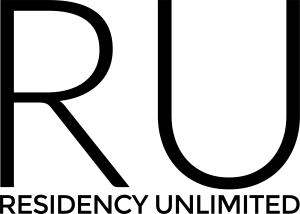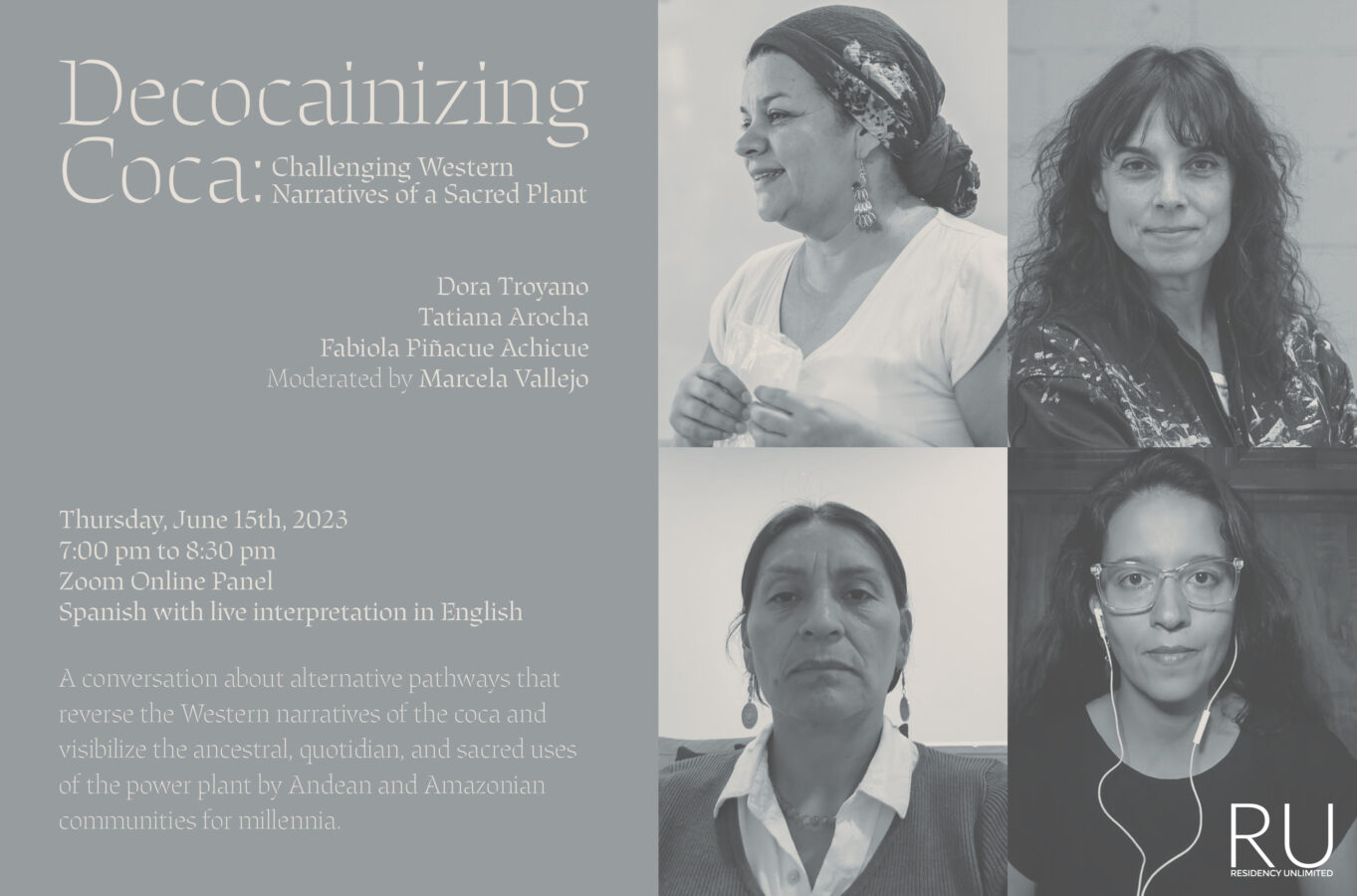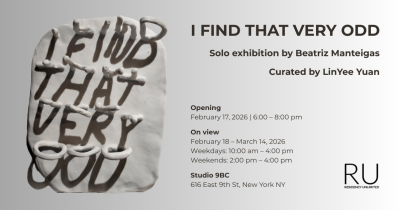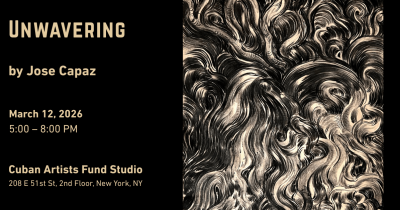Virtual Panel
Thursday, June 15, 2023 | 7:00 – 8:30 PM
Join us online for Decocainizing Coca: Challenging Western Narratives of a Sacred Plant, a panel about alternative pathways that reverse the Western narratives of the coca plant that have invisibilized the millenia-old ancestral, quotidian, and sacred uses of the power plant by Andean and Amazonian communities. The conversation is moderated by Marcela Vallejo, Pedagogical Coordinator for Vist Projects with speakers Dora Troyano, coordinator for Alianza Coca Para la Paz; Fabiola Piñacue Achicue, indigenous of the Nasa people, and founder of the commercial and resistance initiative Coca Nasa; and visual artist Tatiana Arocha. Decocainizing Coca is organized in conjunction with in pieces…, the culminating exhibition of the 2023 NYC-Based Artist Residency Program on view at PS122 Gallery from June 10 – 25, 2023.
The conversation will be held in Spanish with translation into English.
The coca leaf is a traditional natural resource that is integral to the cultural, social, political, religious, medicinal, and nutritional life of the Indigenous communities in the Andes and the Amazon. Due to the scientific discovery of cocaine and the Western commodification and exploitation of the coca plant from which it is derived, the coca leaf and its use have been stigmatized due to its association with its Class A narcotic derivative, cocaine. “The War on Drugs,” a global campaign led by the United States federal government for decades, has not only failed to reduce cocaine production, trade and consumption, but has caused catastrophic social and environmental consequences, most significantly in the cultivating countries of Colombia, Bolivia, and Peru. The Western stigmatization of the coca plant has rendered invisible the kinship between the sacred plant and Indigenous communities in the Andes and Amazonas, and eradication and prohibition have turned campesinos into state enemies and fueled the ongoing Colombian armed conflict. The boom in the production and commercialization of coca-derived products such as Vino Mariani, Coca-Cola, pharmacological products (and the subsequent persecution of cocaine) paint a picture of heroic explorers, scientists and inventors associated with science and progress among the elite all the while destroying Indigenous rituals, culture and identity inextricably tied to the coca plant.
SPEAKERS
Dora Troyano is an Ecologist from Popayan, Colombia, and a specialist in Conservation Ecology. Since 2000, she has actively participated in the promotion of traditional and alternative uses of the coca leaf through participation in the International Coca Leaf Forum and work with the National Learning Service of Colombia (SENA), from whom she obtained a permit to acquire coca leaf as raw material for research projects that have achieved the standardization of food and fertilizer products. All of the knowledge and results from Troyano’s research have been transferred to Peru and Bolivia. Between 2019 and 2022, Troyano coordinated the Coca Challenge for the Coca Alliance for Peace, which convened a group of chefs to learn about the process of making food from the coca leaf. She is currently pursuing a PhD in Ethnobiology and Biocultural Studies at the University of Cauca in Popayan, Colombia.
Fabiola Piñacue Achicue, Indigenous of the Nasa people of Cauca, Colombia, is the former mayor and ex-treasurer of the municipality of Paez, Cauca, and the founding manager of the commercial initiative Coca Nasa for the dignification, respect, and promotion of the coca leaf. She led the legal battle against Coca-Cola to defend local products derived from the coca leaf such as Coca Sek soda. Piñacue Achicue is a Political Scientist at the Universidad Javeriana and received an MA in Geography from the Pedagogical and Technological University of Colombia.
Tatiana Arocha is a New York-born Colombian artist whose research-based practice explores intimacy between people and the land. Rooted in personal memory and her immigrant experience, her work centers on community through public art interventions and transdisciplinary knowledge exchange. Arocha’s work has been presented at venues that include: Sugar Hill Children’s Museum of Art & Storytelling, BioBAT Project Space, Queens Botanical Garden, Smack Mellon, Wave Hill, and The Clemente, with site-specific installations commissioned for BRIC, Brookfield Place, and MTA Arts. She is the recipient of awards from The Sustainable Arts Foundation, Brooklyn Arts Council, City Artist Corps Grants, and Brookfield Place New York Annual Arts Commission.
MODERATOR
Colombian anthropologist Marcela Vallejo oversees Pedagogical Coordination and Communication for Vist Projects in Colombia. Her work focuses on urban and ethnographic studies with a focus on local empowerment processes through the appropriation and resignification of space in cultural practices and expressions. Vallejo has extensive experience conducting ethnographic research projects together with Indigenous, Afro-descendant, and urban communities as well as with LBGTI populations in rural contexts. She has been part of collectives and interdisciplinary teams whose collaborative research seeks to create new spaces for dialogue, collective learning and debate with alternative forms of communication, participation, and education.
This program is made possible by the New York State Council on the Arts with the support of the Office of the Governor and the New York State Legislature and public funds from the New York City Department of Cultural Affairs in partnership with the city council.






